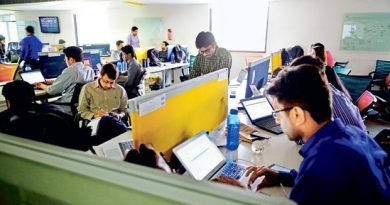India and Vietnam Relations towards New Heights
Prof. G. Jayachandra Reddy
India-Vietnam relations have been exceptionally friendly and cordial since their foundations were laid by two friends – President Ho Chi Minh and Prime Minister Nehru. The traditionally close and cordial relations have their historical roots in the common struggle for liberation from foreign rule and the national struggle for independence. Pandit Jawaharlal Nehru was one of the first visitors to Vietnam after its victory against the French at Dien Bien Phu in 1954. President Ho Chi Minh visited India in February 1958. Vietnam and India have a rich history of diplomatic relations. During the most testing times in its independence movement, India supported the North Vietnamese regime steadfastly. India was also one of the first countries to recognise the Vietnamese government once the consolidation of the country was achieved in the mid-1970s. Both Vietnam and India were also close allies of the Soviet Union during the Cold War. Though both the countries believed in different political ideologies but the patriotic spirit and political goal was only achieving independence to their respective countries. Of course, Vietnamese have great admiration towards Gandhian philosophy of Peace and Non-violence at the same time Indians always respect the fighting spirit of the Vietnamese who won two great wars against French and the US. Though the political ideologies are different, India and Vietnam leaders have transformed their personal friendships into diplomatic relations and further fostering towards greater partnerships. India has launched its Look East Policy in 1990 and has been striving to have better relations with all the Southeast Asian countries. In this direction, India became an ASEAN’s Dialogue Partner in 1992; Summit Level Partner in 2002; Strategic Partner in 2012. Similarly, India has also been maintaining its relations with Vietnam, as a humble beginning India entered MoU in 1994 which paved way to the formal Defence Protocol in 2000 and Strategic Partnership in 2007 further upgraded to the Comprehensive Strategic Partnership in 2016. However, both countries have a strong penchant for underlining strategic autonomy in their foreign and domestic policies, which have often, lead to friction with the US. With the rise of China in recent years, their ties have become strategic in orientation. Bilateral trade has also grown since the liberalisation of the Indian and Vietnamese economies. Vietnam has backed a more prominent role for India in the Association of Southeast Asian Nations (ASEAN) as well as India’s bid for a permanent membership in the United Nations (UN) Security Council. Both India and Vietnam worry about China’s growing power and domination. Both have had recent experiences of being attacked by China. And both have independently realigned their policies, becoming friendly with the United States as well as traditional American allies in the Indo-Pacific such as Japan and Australia. Both also, of course, have active territorial disputes with China. These natural affinities have indeed strengthened the relationship between the two countries, especially in the defense and strategic sector. There are frequent high-level visits and meetings between the two sides. Indian President Ram Nath Kovind paid his state visit, during which he was given the rare honor of addressing the Vietnam National Assembly, which only Chinese President Xi Jinping had done before. As a member of the ASEAN, Vietnam is an important enabler for India’s growing trade and investment ties with the rest of Southeast Asia – the focus of India’s ‘Act East’ Policy. In 2017, India and Vietnam celebrated 45 years since the two countries established diplomatic ties. To commemorate their growing partnership, Vietnamese President Tran Dai Quang visited India in March 2018. During his official visit, Dai Quang discussed several areas of bilateral interest, including international security in maritime and cyberspace and strengthening regional trade engagement. A joint statement, issued after the visit points towards larger cooperation between the two countries in oil and gas exploration, manufacturing, and agricultural technology.According to the changes in regional as well as global geopolitics, India and Vietnam are moving closer and trying for better strategic relations. India’s Defence Cooperation has emerged as a significant pillar of strategic partnership with Vietnam. After the signing of the MoU on Defence Cooperation by the two Defence Ministers in November 2009, the relations have grown from strength to strength. Indian ships regularly make friendly port calls to Vietnam. For the first time, a Vietnamese ship participated in the International Fleet Review at Vishakhapatnam, India, in February 2016. Ever since India and Vietnam became strategic partners there has been an annual Strategic Defence Dialogue with the Indian Defence Secretary representing India. Considering the intensity of relations, the upgradation of these talks to the Ministerial levels would be necessary. Cam Ranh Bay has been often described as one of the jewels of Vietnam. Vietnam is currently procuring Indian Offshore Patrol Vessels with the line of credit offered. Vietnam is impressed with Missile development and is keen to purchase the Supersonic Cruise Missile BrahMos which could be used on land and sea. The issue merits serious consideration as there are no objections from the foreign joint developer. Vietnam is also keen that opportunity is accorded to train their scientists in missile technology and running of nuclear reactors.An institutional mechanism has been established from both sides, towards an effective implementation of the proposed agenda. The Joint Commission Meeting at the Foreign Ministers’ level and Foreign Office Consultations (FOCs) and Strategic Dialogue at Secretary-level provide the larger framework for bilateral cooperation in various areas. There is an annual Security Dialogue at Defence Secretary Level and a Joint Committee on Science and Technology that meets periodically. The India-Vietnam Joint Working Group on Educational Exchange was set up in 2012. The India-Vietnam Joint Sub-Commission on Trade was set up in 2013. The last meeting of the Joint Sub-Committee on Trade was held in March 2016 in New Delhi. The first meeting of the Joint Maritime Liaison Committee between India and Vietnam was held on 15th April 2016, in Mumbai. The 10th Joint Subcommittee Meeting on Science and Technology was held in Delhi on 21st December 2017 while the first meeting of the JWG on IT was held on 24th August 2017, in Hanoi. The two countries have also been looking to further upgrade relations in a more institutionalized and wide-ranging way over the past few years, with a key inflection point being the upgrading to the level of a comprehensive strategic partnership back in 2016 and advances made in certain areas, including the maritime realm. The visit of Indian President Ram Nath Kovind to Vietnam focused on discussing a joint vision to further deepen the Vietnam-India comprehensive strategic partnership. During the past few years, both the countries have witnessed with satisfaction the development of friendship and cooperation between Vietnam and India. With the continuous efforts of both sides the relations between Vietnam and India will be further strengthened and developed with every passing day so that we can develop and enhance not only the friendship but also strengthen the scientific research and teaching in Indian Studies, enforce the labor forces to meet the urgent requirements in globalization, contribute to opening a new chapter in the relations between our two countries.




